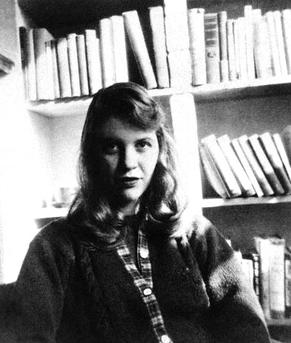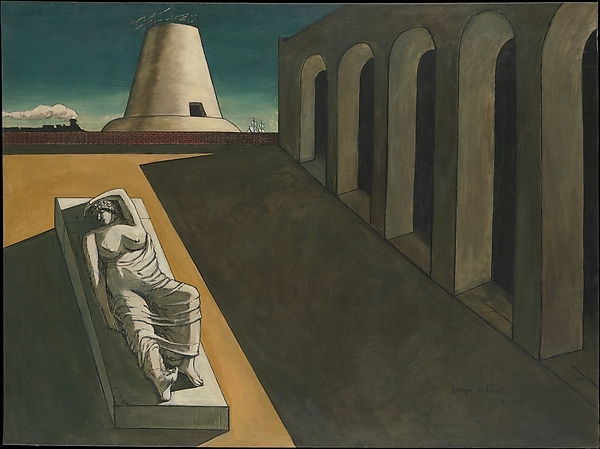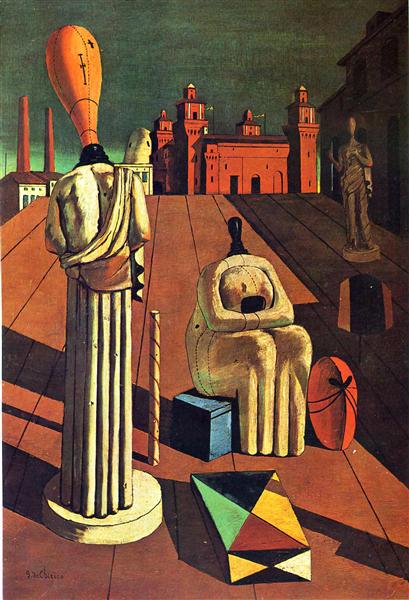#15: Sylvia Plath’s Spring Break

Sylvia Plath in 1957
Note for new subscribers: this letter comes to you twice a week. Tuesday’s note is longer, Thursday’s note is short. For all readers: this week, this will be even more so! Because today’s letter is longer than usual, Thursday’s will be shorter.
Hi hi!
I’ve been rereading Sylvia Plath’s journals as part of the Bolt Forward I’m doing on my book. I wrote about my attachment to the journals (and a little about yoga) here a while back. Short version: I love the journals immensely, and they help me whenever I need to get my brain going.
The section I’ve been focusing on this reread is the one from 1957-1958, the year that Plath taught at Smith College. She’d returned to the U.S. after her Fulbright at Cambridge University. She and Ted Hughes were newly married, and they needed money. She landed a two-year gig at Smith, from which she’d graduated a couple years before, and Hughes got a position at U Mass. She was, from accounts I’ve read, a good professor, but she stayed for only a year of the contract. The job exhausted her, and it left her little time to write. (If you teach, you may find resonance in an entry where, after a mess of grading, she writes,”never again shall I ask for more than a two page paper.”) She was sick a lot too, with sinus infections and pneumonia. There’s a quality to the descriptions of how tired she is that also—whenever I reread them—makes me want to hop in a time machine so I can waylay her on some Northampton street corner, administer an anemia test, and get her started on a good iron supplement.
Plath, in soliloquy: “Today, all I feel like doing is sleep. I fall on the bed, drugged, with this queer sickish green-vinous fatigue.”
Time traveller, thrusting a Whole Foods bag in her arms: “Here, try Floradix!”
It should be miserable reading an account of someone else’s miserable year, but it’s one of my favorite sections of the journals. Underneath the exhaustion, so much is percolating and fomenting and creatively moving around, it’s sympathetically very exciting. Also, she’s plotting a novel and, you can tell, viewing everyone she has coffee or dinner with as possible characters, and so the portraits of other people become acidic and especially sharply drawn, and that’s entertaining too.
She gets pneumonia at Christmas, then slogs through the long, slushy tail end of Massachusetts winter. The word “trudge” keeps cropping up in these entries. Spring break is ahead and she begins anticipating “a week to write on a poem for days.” She starts counting down. The initial plan is to work on a long poem for a contest—350 lines, made of up 10 smaller poems.
From a March 15 entry:
And so I have survived. It is well after eleven, the radiators dead cold and the air unproductive and chill. Fell into bed & slept as usual this afternoon with Ted: a drunken sleep-sodden drowning. [Try Floradix!—ed.] I am surrounded by papers to correct & must grind on two more days, but at home, at least, with no class preparation. … [Of the break coming up:] I feel like a dead person offered the fruits and riches & joys of the world only if she will get up and walk. Will my legs be sturdy? My trial period approaches. To bed, now & resolutely to work tomorrow. Save, conserve: wisdom knowledge, smells & insights for the page: to wrestle through slick shellacked facades to the real shapes and smells and meanings behind the masks.
From a Tuesday, March 18 entry, a couple days before break starts. The plan is starting to shift from the long poem to working on maybe it and a poem about art:
How lovely it will be to spend my mornings, after coffee, working on poems, an art poem (I must get books on Rousseau, Gauguin, Klee) and a long poem about the spirit…. From now on nothing will be so bad. I’ll wash my hair today & start cleaning house. When will I feel my liberty? Perhaps not till tomorrow, after my last class to attend, perhaps not till sleep on Thursday.
Spring Break Gained
OK, then, here we go! The entry for Thursday morning, March 20, the first day of spring break. The idea of the longer poem gets abandoned and she’s settled on spending the break working on a series of art poems:
My first morning: blank pages; a blank page. Tired still, but warm & comfortable. Resolved not to go out: outside the slithering soggy sound of cars speeding through wet. Snow falling when I woke: black varnishing the slick roads, but hanging to tree and roof top in icy shackles. I give myself a week—through next Wednesday; and give up the idea of the long contest. Have narrowed down poem subjects to Klee (five paintings and etchings) and Rousseau (two paintings) & will try, arbitrarily, one a day. Each subject appeals, deeply, to me. Must drop them in my mind and let them grow rich, encrusted. And choose: choose one today. I sit in a stupor—torn, torn: a pure whole week, and me so far from my deep self, from the demon within, that I sit giddy on a painted surface. Yesterday: sat in the art libe soaking & seeping in pictures. I think I will try to buy the Paul Klee Book. Or at least, get it over the weekend. …
“… blank pages; a blank page” would be the lyrics to the screeching-horror-music that plays whenever you’ve been looking forward to writing, announcing to everyone how you’re going to write whenever this opportunity arises, and now it’s the morning of and you open the door to the basement of the old cabin in the middle of the woods and the door creaks open and…. ARRRGGHGHGGHGHHHH! blank page. She starts coaxing herself out, with the tried-and-true “what is my body condition” and “what’s the weather doing?” I remember, the first times reading this entry as a teenager, that I loved (and found instructive) that she’d gone to the library the day before, gotten a stack of art books, and spent the afternoon leafing through them. Rereading it this time, I find it interesting that she sees the ideas she has as something she’s going to send plonking like stones down a well (or, dun-dun-dunn, into a channel) to rest there for a while. She repeats, too, from the March 15 entry, the feeling of being on a surface, of having a facade between herself and what she wants to write about (“breaking open” is always a big, meaningful phrase for her). And the “choose: choose one today” is good too (and what I need to pin on my shirt this week).
The entry resumes later that same day after she’s been to lunch at her friend Clarissa Roche’s. Roche had two young children, and in the journal Plath writes that she’d come to the conclusion that both kids were not bright (“idiots”) especially the younger one (a toddler!) because all he did during the visit was run around “drooling, all extroverted – no inner, self-contained play – futile, purposeless flinging about.” I don’t know why I find this so funny, but I do. It’s so Plathian (and says so much about the hyper-expectations of her own childhood). I recently came across a 1949 photo from Life magazine that showed a toddler posing for a picture with his ballerina movie-star aunt, and the caption commented on his “barely adequate arabesque.” Apparently this was the era for calling out little kids for what they are: terrible dancers and lousy lunch companions. Anyway, the lunch entry goes on: “Too much salt in a fruit salad. We ate, grumpily, & left.” Correctly or incorrectly, I read a lot of this scene as pre-writing peevishness and agitation. It also—in its expectations of children and mothering—pings and echoes around interestingly with one of the poems, “The Disquieting Muses,” that she writes the coming week.
What She Did With Her Spring Break
There’s a week-long break in entries. The next entry is Friday, March 28th:
“A whole week, and I haven’t written here, not picked up the book. For good reason. For the first time a lapse of writing here spells writing. I was taken by a frenzy a week ago Thursday, my first real day of vacation, and the frenzy has continued ever since: writing and writing: I wrote eight poems in the last eight days, long poems, lyrical poems, and thunderous poems: poems breaking open my real experience of life in the last five years: life which has been shut up, untouchable, in a rococo crystal cage, not to be touched. I feel these are the best poems I have ever done. Occasionally I lifted my head, ached, felt exhausted. Saturday I groaned, took pellets of bufferin, stitched in the worst cramps and faintness for months, which no pills dulled [Seriously, I’m pretty sure you’re anemic—anemia makes periods worse, which then makes the anemia worse, and so on, and, well, try Floradix!—ed.], and wrote nothing: that night we went to a dull dinner … [interlude after dinner where she walks around hoping for a scene of “tragedy” or “general carnage”]… Today: bright sun and a benevolence in the air; the scratch and roar of men sweeping up the winter’s leavings of sand from the street into waiting trucks. The park with a pale greenish light, full of innumerable squirrels, silvery, sun-dazed, picking up twigs & chasing each other. …
The snow is gone, sand is getting whisked up, squirrels are tumbling out of trees. She mails off a bunch of poems to magazines. The next day she wakes up with a martini-and-beer hangover (a hangover—it really is spring break!) and from a nightmare about teaching. From the March 29 entry:
I sit, this morning, yellow-green of color, and sickish, in Ted’s big dark green & red plaid woolen bathrobe and the house is chill, but clean, except for a pan of dirty glasses we drank out of all during the night to ease our dehydration. We want to buy art books. de Chirico. Paul Klee. I have written two poems on paintings by de Chirico which seize my imagination — “The Disquieting Muses” and “On the Decline of Oracles” (after his early painting, “The Enigma of the Oracle”) and two on paintings by Rousseau — a green & moony-mood-piece, “Snakecharmer”, & my last poem of the eight, as I’ve said, a sestina on Yadwigha of “The Dream”. I shall copy here some quotations from a translated prose-poem by de Chirico, or from his diaries, which have unique power to move me, one of which, the first, is the epigraph to my poem “On the Decline of Oracles”:
—-
1. “Inside a ruined temple the broken statue of a god spoke a mysterious language.”
2. “Ferrara” the old ghetto where one could find candy & cookies in exceedingly strange & metaphysical shapes.”
3. “Day is breaking. This is the hour of the enigma, This is also the hour of prehistory. The fancied song, the revelatory song of the last, morning dream of the prophet asleep at the foot of the sacred column, near the cold, white simulacrum of god.”
4. “What shall I love unless it be the Enigma?”
—
And everywhere in Chirico city, the trapped train puffing its cloud in a labyrinth of heavy arches, vaults, arcades. The statue, recumbent, of Ariadne, deserted, asleep, in the center of empty, mysteriously-shadowed squares. And the long shadows cast by unseen figures – human or of stone it is impossible to tell. … Arrogant, I think I have written lines which qualify me to be The Poetess of America (as Ted will be The Poet of England and her dominions). Who rivals?
This is the well-known part of the entry, though it’s the least interesting part to me. She mentions Sappho, Emily Dickinson, Edna St. Vincent Millay, and a few others (“all dead”). Of living poets she names “May Swenson, Isabella Gardner, & most close, Adrienne Cecile Rich – who will soon be eclipsed by these eight poems: I am eager, chafing, sure of my gift, wanting only to train & teach it – I’ll count the magazines & money I break open by these eight best poems from now on.”

Giorgio de Chirico’s “Ariadne”

& de Chirico’s “The Disquieting Muses”
The next entries go on to describe a dentist visit, being irritated by Hughes (the future Poet of England was picking his nose and being “dogmatically grumpy”), and getting—inevitably—an awful cold the night before classes start back up. But still, eight poems for the spring break! I don’t know that the poems were good enough to extinguish Adrienne Rich from the universe, but they were an odd, great step forward in Plath’s work, and I’m fascinated (and admiring) of the way they emerged in the midst of having her period, and going to lunches with oversalted fruit salad, and getting through hangovers and dentist visits and marital fractiousness and all the other things that can’t be got rid off even during a super-special spring break.
I like the two de Chirico poems especially, which is why I quoted that entry at such length. You can read “On The Decline Of Oracles” here, and this is the close from “The Disquieting Muses”:
Mother, you sent me to piano lessons
And praised my arabesques and trills
Although each teacher found my touch
Oddly wooden in spite of scales
And the hours of practicing, my ear
Tone-deaf and yes, unteachable.
I learned, I learned, I learned elsewhere,
From muses unhired by you, dear mother,
I woke one day to see you, mother,
Floating above me in bluest air
On a green balloon bright with a million
Flowers and bluebirds that never were
Never, never, found anywhere.
But the little planet bobbed away
Like a soap-bubble as you called: Come here!
And I faced my traveling companions.
Day now, night now, at head, side, feet,
They stand their vigil in gowns of stone,
Faces blank as the day I was born,
Their shadows long in the setting sun
That never brightens or goes down.
And this is the kingdom you bore me to,
Mother, mother. But no frown of mine
Will betray the company I keep.
Yours until Thursday,
wishing you parks full of sun-dazed squirrels,
CAAF
p.s. If you haven’t subscribed to this newsletter and would like to, go here.
—
Carrie Frye
Black Cardigan Edit